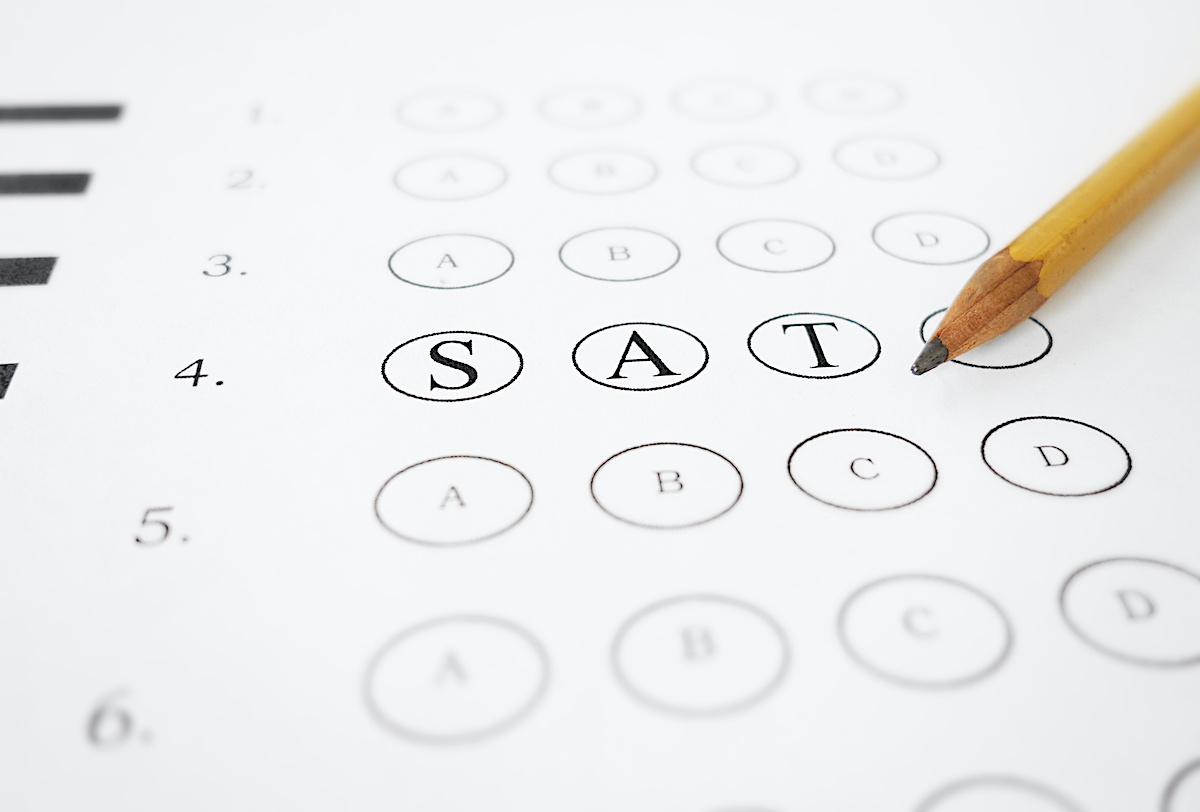
Charles Mendels has helped thousands of students prepare to get into college as the founder and head tutor at Atlanta-based Access Test Prep.
He and his fellow tutors are giving lessons online now, but demand remains high for SAT and ACT prep classes, even as colleges across the state go test-optional in the wake of spreading COVID-19 cases.
“For students who can take it and do well, it’s still good, it’s still a help for their application,” Mendels said. “Students realize that being test-optional doesn’t mean that they shouldn’t take it. They can take it, and it’s still an advantage. And we’re already busy with this year’s high school juniors, because I think most people are hopeful that things will return closer to normal by the application cycle next year.”
The University System of Georgia’s 26 institutions are allowing students to apply for spring, summer and fall 2021 semesters without taking college entrance exams this year after nearly 60 SAT testing sites across the state closed in August due to fears of spreading COVID-19. The university system made the exams optional at most of its colleges in the spring as COVID-19 shut down testing sites and school buildings.
That puts some high school seniors and college freshmen in a tough spot — the relief does not remove the testing requirements for the Zell Miller Scholarship, which can pay the full cost of in-state tuition for students who qualify.
To receive full tuition, students must earn a 3.7 GPA in high school and score a 1,200 on the math and reading portions of the SAT or a 26 on the ACT. The HOPE Scholarship only pays a portion of tuition but has a lower GPA threshold, 3.0, and no test requirement. Neither version covers books or fees as HOPE scholarships once did.
A University of Georgia student could receive up to $7,680 per year from HOPE or up to $9,790 from the Zell Miller Scholarship. In the last school year, 9,901 students received the Zell Miller Scholarship for the first time, up from 9,669 the year before.
The Georgia Student Finance Commission pushed back the deadline for submitting test scores from the end of the school year until December and is considering further steps to make sure students get the help they deserve, said spokesman Chris Green.
“Given the ongoing cancellations of SAT and ACT testing, the Georgia Student Finance Commission is considering additional options for administrative and statutory changes to further support students during this time,” he said. “Students in the Class of 2020 and 2021 should continue to visit www.GAfutures.org for additional updates in the coming days.”
State Rep. David Wilkerson, a Powder Springs Democrat, is calling to remove the testing requirement altogether, a move that would make every Georgia student with a 3.7 GPA eligible for full tuition in a university system school.
“You’d still have to take the same rigorous courses, you’d have to have the same GPA, you still have to be one of the top performers in your school, you just no longer would have to have the SAT or ACT score,” Wilkerson said.
Wilkerson opposed the testing requirement when the Zell Miller Scholarship was created in 2011, he said, and the current situation demonstrates the tests are not needed.
“These tests aren’t even available,” he said. “And the Student Finance Commission can push back the requirement, but they can’t eliminate it. So I think it’s good for us to take a look at it and say what students have a 3.7 GPA but don’t get a 1,200? It’s usually your students that are moderate to lower income that can’t afford the SAT prep classes and students that may not perform well on a one-day test, but they are no less successful in college.”
But permanently changing the requirements because of a temporary pandemic could be shortsighted, said Alpharetta Republican and House Higher Education Committee Chairman State Rep. Chuck Martin.
“If David thinks it’s a good long-term policy decision to get rid of the achievement requirement for the Zell Miller Scholarship, then certainly he can offer that for discussion,” Martin said. “But doing it based on the test not being available this year is a long-term policy discussion based on this short-term situation.”
Legislators should instead craft a specific solution for the students who are not able to test without changing the entire system, Martin said.
“I’ve had conversations with the executive branch and others about what we can do to provide access to the class of ‘20 and the class of ‘21 for Zell Miller,” he said. “And that’s what we’ll do, because that protects the integrity of Zell Miller and the HOPE Scholarship as merit-based programs that reward achievement. So we absolutely want to give these classes access while maintaining the integrity of the merit-based system.”
The solution is likely to be hashed out in next year’s legislative session after its scheduled start in January, but it should be merit-based and narrowly tailored to the students affected by the virus, Martin said.
“When we write the accommodation, if you will, I think you would write it toward if you are unable to get the test, this could apply and you don’t want to put a closed door, a date on it,” he said. “It could be something along the order of your achievements in college. I’m not sure what that is. That’s what the discussion should be.
“Everybody cares about our students, and especially the students that have felt pressure not being able to test,” Martin added. “Absolutely, we want to help them. My disagreement with the representative’s approach is painting with such a broad brush without knowing the cost.”
The Zell Miller Scholarship and HOPE Scholarship are funded by the Georgia Lottery, which also pays for the state’s Pre-K program.
More students receiving the scholarship means more money from the lottery and potentially less for pre-K and HOPE, Martin said.
That should not be a concern, Wilkerson said. The state is required by law to set aside 50% of the prior year’s net lottery proceeds. Half of the reserves are designed for use in case of a shortfall in lottery sales, but the rest are not restricted, according to the Georgia Budget and Policy Institute. At the start of the year, the lottery’s reserve was nearly $1.3 billion and sales rose as the state shut down in April.
“The HOPE has the funds for it,” Wilkerson said. “And do you really want to risk losing these students to other states? Other states have already made this change. Will they start sending their kids out of state because HOPE is not as valuable? Even with HOPE, you can spend $2,000 to $3,000 a semester living off campus. You’re still paying a significant chunk of money with HOPE. So we can keep our best and brightest in the state by giving the full HOPE.”
Mendels said he does not expect a change to the Zell Miller formula to affect business at his center, where students generally aim for higher-tier universities.
“I think it would have a bigger impact if it were true for admissions generally than if it were true for just the Zell Miller, and I have trouble seeing Georgia schools dropping the SAT and ACT generally for admission,” he said. “And the numbers you need on the SAT or ACT for Zell Miller aren’t very high compared to what you need to get into some of the schools anyway. It’s 1200 for the SAT, 26 for the ACT. And for a lot of the Georgia schools, including UGA, Georgia Tech, to some extent Georgia State, you need those numbers to get in, aside from the scholarship.”
College entrance exams should be given less weight because they disproportionately benefit those whose families are able to afford SAT prep classes and multiple tests, Wilkerson said.
“The question becomes, is a kid who gets a 1200 after spending $1,000 on a prep class any smarter than a kid that gets 1100 after taking the test once and doesn’t take the course? The answer is no,” Wilkerson said. “A better indicator is how they did relative to their peers in schools.”
There is some truth to that idea, Mendels said, but colleges can consider standardized tests as just one part of an applicant’s story.
“If you look at their impacts overall, they’ve really opened up opportunities for lower income students and students of color, I think, more than they’ve blocked opportunities,” he said. “Because colleges have the ability to judge students from a huge range of schools with really different programs based on some objective, standardized system. They’re therefore willing to look for students in schools where they might not have the same opportunities at school, but they show promise through these tests that they wouldn’t otherwise have some standardized way of showing.”
This story appears through a Now Habersham partnership with Georgia Recorder







